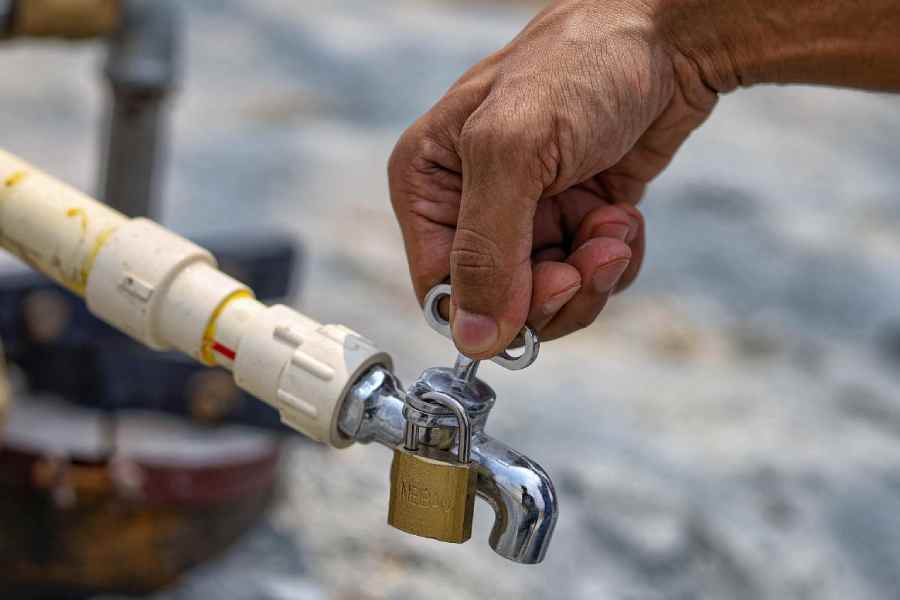The country’s answer to Silicon Valley is discovering that the perks of a good life start with a basic commodity: water.
Bengaluru, dotted with tech companies that employ thousands of software engineers from across the country and abroad, is in the throes of the worst water crisis in about four decades, with no rain in sight.
When the Bangalore Water Supply and Sewerage Board (BWSSB) banned drinking water for non-potable use almost a month ago, it was seen as a knee-jerk reaction to a problem whose intensity would soon end.
Nearly a month later, however, solutions to the water crisis remain a mirage. Residents keep exploring options to find non-potable water for washing cars and courtyards and even gardening.
If anyone uses potable water for, say, watering plants, the BWSSB promptly fines Rs 5,000 for each first-time violation. Each subsequent violation costs Rs 5,000 plus an
additional Rs 500.
A BWSSB source said that they have so far collected more than Rs 1.5 lakh in penalties from across the city. Residents have now started limiting the use of precious Cauvery water.
The oppressive heat and the driest March in many years have added to the woes of the parched city.
A supplier of potable water in upscale Indiranagar in the city told this newspaper that 6,000 litres now cost Rs 800, although the government had capped the price at Rs 600 for ferrying a tanker within a radius of 5km and Rs 750 between 5km and 10km.
The water board kept a close watch on recreation centres and hotels where Holi celebrations were held last week. The authorities prohibited using Cauvery water and bore well water for pool parties and rain dances, a Holi staple in a city where the festival is a recent import with migrant population from the north.
The safest option for many for washing cars and utility areas and gardening is wastewater pumped out by reverse osmosis (RO) water filters in the kitchen. Even so, many worry about getting fined, since only a lab test can prove that the water is indeed flushed out by RO filters.
Apartment complexes with sewage treatment plants are allowed to use treated water to clean the common areas and for gardening. Some apartments built with enough foresight have already been using treated wastewater for flushing toilets.
Since washing machines are water-guzzlers, many have switched to the minimum cycles to limit water consumption.
Wastewater pumped out by washing machines can’t be used to water plants but is used to clean tiled outdoor areas.
With the weather forecast grim in the immediate future, the country’s IT capital is looking at a slump in the construction sector.
The BWSSB has allowed builders to purchase treated wastewater from the agency or apartment complexes fitted with sewage treatment plants.
BWSSB chairman V. Ram Prasath Manohar said builders had sought more than 60 lakh litres of treated water and the demand was expected to spike in the coming days.
The BWSSB has permitted apartment complexes that treat their wastewater to sell 50 per cent of it to builders. However, apartments have been finding it difficult to get tankers since those used to ferry potable water cannot be used for treated wastewater.
A resident of Yelahanka in the north of the city, who declined to be named, said his apartment complex was selling treated water for Rs 125 per 6,000-litre tanker to builders who could arrange tankers.











